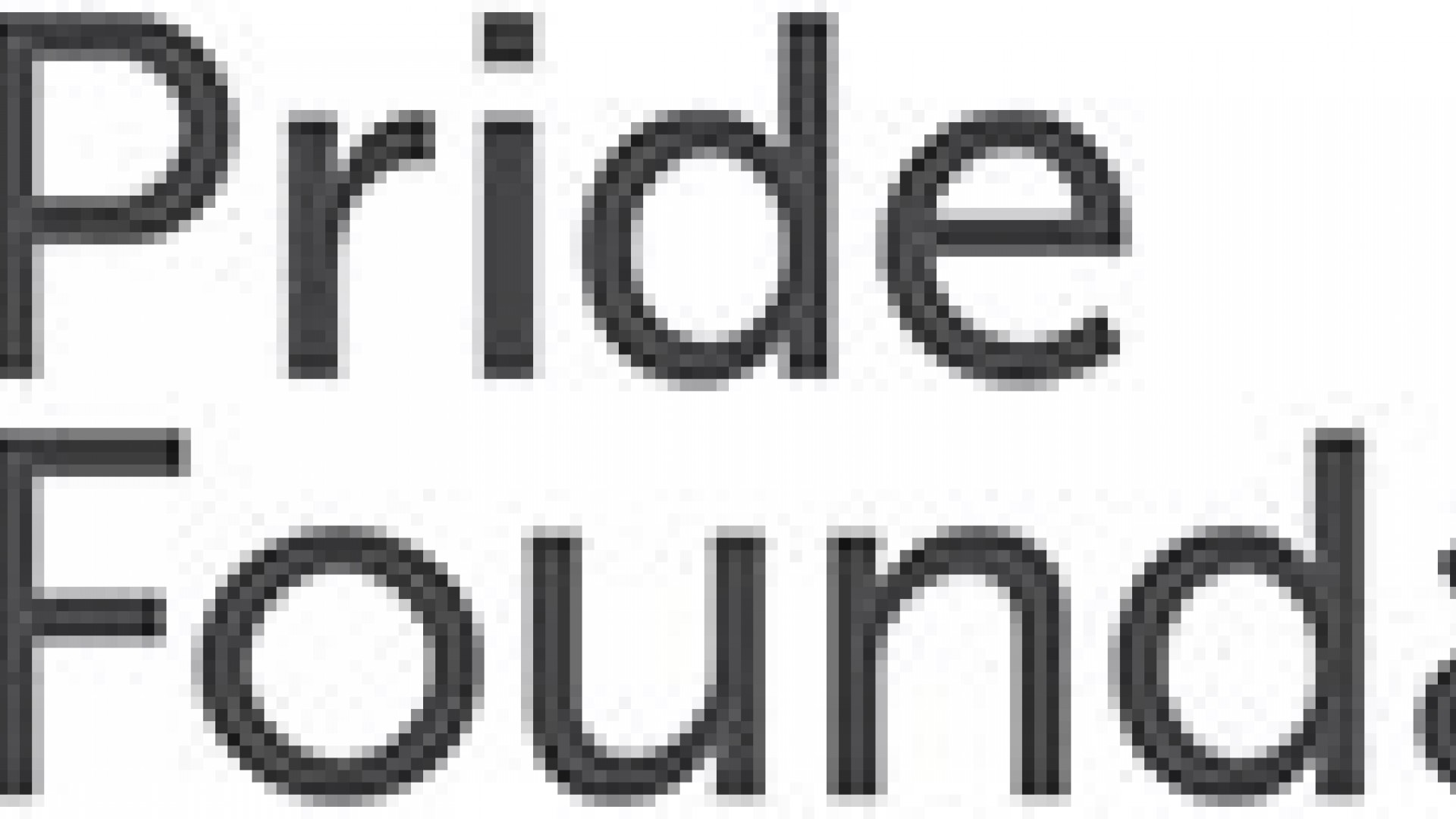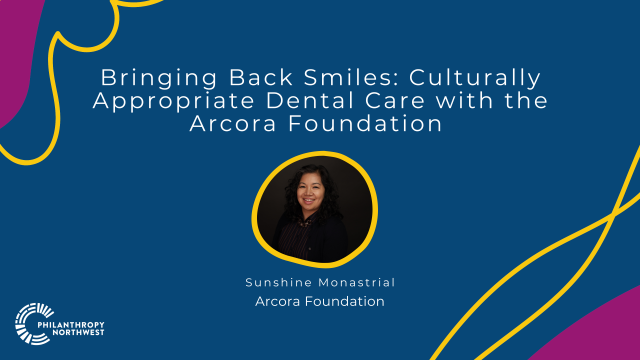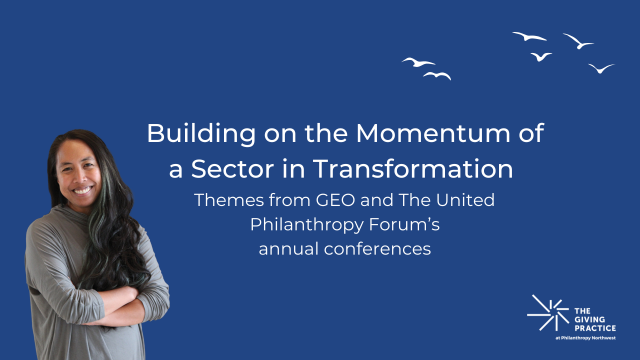
Eli Grossman and Gunner Scott, Pride Foundation
In 1993, Brian M. Day, a black gay rights activist, small business owner and community leader in Seattle, established the first scholarship fund at Pride Foundation. Knowing firsthand the challenges that black gay men faced while pursuing a postsecondary degree, Brian wanted his funds to support gay men of color that have significant financial need and demonstrate leadership through community engagement.
The process was relatively simple: Four volunteers reviewed the handful of applications, with support from Pride Foundation’s board and staff, and the inaugural Brian M. Day scholar was selected.
Two decades later, Pride Foundation has awarded close to 1,500 scholarships, totaling nearly $4 million, to lesbian, gay, bisexual, transgender, queer (LGBTQ) and allied students in Alaska, Idaho, Montana, Oregon and Washington. We have over 50 different donor-advised scholarship funds with differing criteria for each recipient, with awards ranging from $1,000 to $10,000. This year, we received more than 770 applications — each of which consists of three essays and at least one letter of recommendation — and coordinated over 300 volunteer reviewers from our five-state region over a three-month period.
While our application has moved online and we now partner with the GSBA scholarship program to expand the pool of scholarships for students, Pride Foundation has not significantly adjusted the program’s application review process since its inception. This process, which includes two review phases and an interview round, takes more than 5,000 hours. As a community foundation that inspires giving to expand opportunities and advance full equality for LGBTQ people across the Northwest, we are pleased with the results — more than $400,000 in scholarships to 124 grateful students this year — but could there be a more streamlined way to award our scholarships, while remaining fair, consistent, timely and even more accessible?
Additionally, we have a seen an increase in our awarded scholarships going unused. While we don’t know all the reasons behind this, a consistent theme we hear is that students had to leave school due to financial reasons.
Asking the Right Questions
Given the significant growth to our scholarship program over the past two decades, we recently decided it was time to pause and reflect on how the program is administered. In order to evaluate its effectiveness and ensure that it aligns with our mission and values, we decided to conduct a scholarship audit, starting with a review process of other scholarship programs.
When we began our research to find current best practices for scholarship programs, however, we found only incredibly limited research on this topic. And by limited, we mean that there was only one relevant study: a 2011 report on Concordia University’s scholarship program.
This lack of easily accessible information inspired us to conduct our own survey of scholarship programs this past spring. With help from Philanthropy Northwest, Pride Foundation contacted community foundations in the region, colleges and university programs, community-based organizations, family/private foundations and other LGBTQ scholarship programs to gauge best practices. We asked about their scholarship review process, application requirements, average scholarship award amounts, reasons behind unused scholarships and satisfaction with effectiveness and efficiency of the review process.
A total of 39 foundations responded to our survey: 13 community foundations, nine college/university foundations, eight community-based organizations or groups, three family/private foundations, and six respondents who self-identified in the “other” category. Some of our preliminary findings include respondent’s average scholarship awards: 31% awarded $1,000-$2,000 per student and 44% awarded an average of $2,000-$5,000 per student.
A key finding for us has been the use of applicant interviews: 66% reported that they do not conduct interviews; 2.5% noted that they conducted interviews in the past, but no longer do. Pride Foundation’s review process currently includes applicant interviews by a three-to-five person committee. The interviews are preferably done in person, but also via phone and web conferencing. Our interview day is one of the significant ways donors and supporters interact with Pride Foundation — but it takes significant time and resources to manage.
Celebrating the Results
Pride Foundation scholarship recipients at the 2014 Seattle Scholarship Celebration
We expect to be fully done with our analysis this summer and hope to present our findings at the National Scholarship Providers Association conference in October, and develop a public report for other scholarship programs to use when examining their own processes.
While our research might lead us to change how our scholarship applications are reviewed in order to most effectively administer and grow the program, we continue to be guided by Brian M. Day’s legacy — with a goal of providing essential financial resources and community support to LGBTQ students across the Pacific Northwest, particularly those who are vulnerable and continue to be marginalized in the education system.
We hope you will join us at one of our upcoming Scholarship Celebrations across the region to help us honor the next generation of student leaders. Our series of events will kick-off in Seattle on May 27, followed by local celebrations in Anchorage and Fairbanks, Alaska; Boise, Idaho; Bozeman and Missoula, Mont.; Portland, Ore.; and Spokane, Wash.
To learn more about our scholarship survey and research project, contact Gunner Scott, Director of Programs, at gunner@pridefoundation.org.
Eli Grossman is the Educational Programs Intern at Pride Foundation and a Master of Social Work student at the University of Washington. Gunner Scott is the Director of Programs at the Pride Foundation.



Comments
Fantastic work Pride
Fantastic work Pride Foundation is doing! Washington Women in Need is very glad to have contributed to the survey and looking forward to hearing more results at the NSPA conference in October. Thanks to all of the folks at Pride Foundation for taking on this important research project, which will be invaluable to our organization, so many other fellow scholarship providers, the gracious and giving donors who support higher education success, and most importantly, the students we all serve.